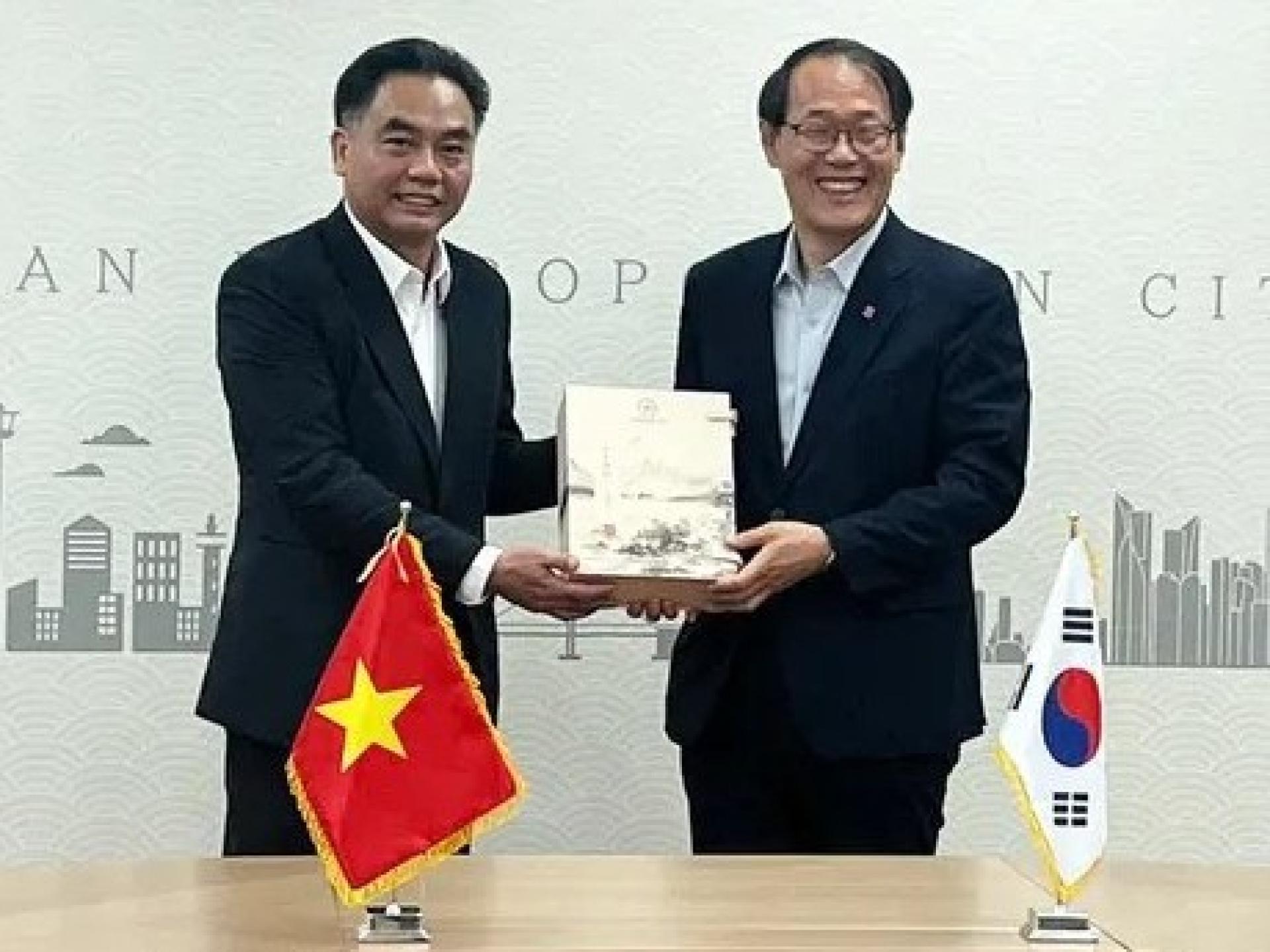(Hanoi, 15th) A delegation from Ho Chi Minh City led by Vice Chairman of the Ho Chi Minh City People’s Committee Nguyen Luc Ha recently paid a working visit to Busan, South Korea. During the visit, on August 14th, the Ho Chi Minh City delegation held talks at Busan City Hall with Busan's Deputy Mayor Lee Jun-seung.
Nguyen Luc Ha expressed sincere gratitude for the warm welcome extended by the Busan city government and citizens, emphasizing that the Vietnam-Korea Comprehensive Strategic Partnership is developing with increasing depth and efficiency, with expanding fields of cooperation.
Speaking about new directions for development after July 1, 2025, Nguyen Luc Ha introduced that Ho Chi Minh City has expanded its development space to 6,700 square kilometers, forming three main pillars: the original Ho Chi Minh City as a “finance and high-tech center”, the former Binh Duong province as an “industrial center”, and the former Ba Ria-Vung Tau province as a “marine economy, logistics and energy industry center”.
He suggested expanding cooperation with Busan in key areas such as logistics and port connectivity, finance and international services, high-tech and high-quality talent cultivation; at the same time, strengthening people-to-people, cultural and educational exchanges to consolidate a long-term and stable cooperation foundation.
Lee Jun-seung stated that Busan enterprises are extremely interested in the development projects of Ho Chi Minh City and the former Binh Duong province, and many enterprises have already joined the urban economic community, creating conditions for Ho Chi Minh City after the merger to open broader cooperation space.
Both sides unanimously agreed to continue advancing specific cooperation projects, focusing on sustainable, high-quality and efficient development, and jointly promoting deepening Vietnam-Korea relations.
Speaking about new directions for development after July 1, 2025, Nguyen Luc Ha introduced that Ho Chi Minh City has expanded its development space to 6,700 square kilometers, forming three main pillars: the original Ho Chi Minh City as a “finance and high-tech center”, the former Binh Duong province as an “industrial center”, and the former Ba Ria-Vung Tau province as a “marine economy, logistics and energy industry center”.
He suggested expanding cooperation with Busan in key areas such as logistics and port connectivity, finance and international services, high-tech and high-quality talent cultivation; at the same time, strengthening people-to-people, cultural and educational exchanges to consolidate a long-term and stable cooperation foundation.
Lee Jun-seung stated that Busan enterprises are extremely interested in the development projects of Ho Chi Minh City and the former Binh Duong province, and many enterprises have already joined the urban economic community, creating conditions for Ho Chi Minh City after the merger to open broader cooperation space.
Both sides unanimously agreed to continue advancing specific cooperation projects, focusing on sustainable, high-quality and efficient development, and jointly promoting deepening Vietnam-Korea relations.
